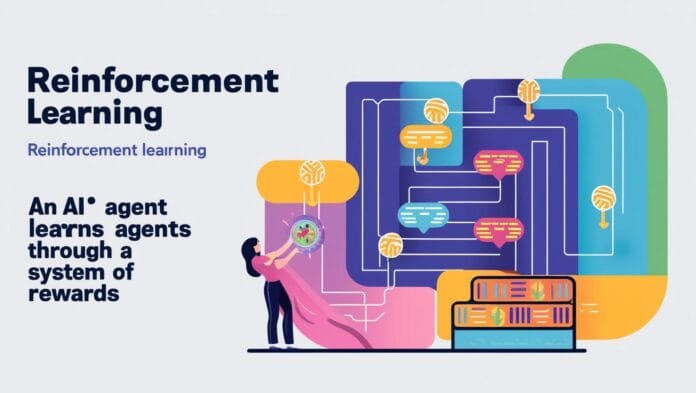Reinforcement Learning is a critical subfield of Machine Learning focused on training agents to make decisions through trial and error. By receiving feedback in the form of rewards or penalties, reinforcement learning systems can optimize their strategies to achieve desired outcomes over time.
Contents
What is Reinforcement Learning?
Reinforcement Learning refers to the process where an AI agent interacts with an environment, makes decisions, and learns through rewards or penalties. Unlike supervised learning, which requires labeled data, reinforcement learning is based on learning from experiences and adjusting strategies to maximize cumulative rewards.
Applications of Reinforcement Learning
- Robotics: Reinforcement Learning is essential for teaching robots to perform complex tasks, such as object manipulation and autonomous navigation. Additionally, it improves the efficiency of robotic systems through continuous learning.
- Gaming: AI systems powered by reinforcement learning have achieved superhuman performance in games like Chess, Go, and Dota 2. Moreover, they enhance decision-making and strategy development.
- Autonomous Vehicles: Reinforcement Learning is used to optimize driving policies, enhancing safety and efficiency in self-driving cars. Furthermore, it helps improve navigation through real-time data analysis.
- Personalization Systems: Reinforcement learning models are employed to provide personalized recommendations by learning user preferences over time. Additionally, they enhance user experience across various platforms.
Reinforcement Learning in 2025
By 2025, reinforcement learning is expected to advance significantly, especially in areas requiring real-time decision-making and adaptability. Improved algorithms and computational power will allow AI systems to handle more complex environments and achieve better performance.
Transition Words Used
- Additionally, it improves the efficiency of robotic systems.
- Furthermore, it helps improve navigation through real-time data analysis.
- Moreover, they enhance decision-making and strategy development.
- Therefore, reinforcement learning continues to evolve.
- As a result, AI systems are becoming more adaptive and efficient.
Internal Links
- Explore how 5G Technology supports reinforcement learning systems with faster data processing.
- Learn about Blockchain Technology and its impact on securing reinforcement learning models.
- Discover how Quantum Computing enhances reinforcement learning algorithms.
- Read about the integration of Renewable Energy Technologies in powering reinforcement learning systems.
External Links
Example:
- OpenAI Gym: A toolkit for developing and comparing reinforcement learning algorithms.
- DeepMind: Pioneering breakthroughs in reinforcement learning through AI research.
- RLlib: A scalable framework for building and training reinforcement learning models.
Sources:
- OpenAI Gym, DeepMind, RLlib.
